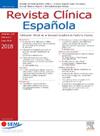Protocolo de actuación básica para el manejo ambulatorio de la insuficiencia cardiaca crónica de la Sociedad Española de Medicina Interna
IF 1.7
4区 医学
Q2 MEDICINE, GENERAL & INTERNAL
引用次数: 0
Abstract
Chronic heart failure (CHF) represents a challenge for the healthy system due to its high prevalence, high burden of morbidity and mortality, and high consumption of health resources.
To address this problem, it is necessary to develop efficient management strategies that include both hospital care and outpatient care. The primary objective is to stabilize the patient and prevent decompensation, with the consequent improvement in quality of life, reduction in hospital admissions and emergency department care, and, consequently, reduction in healthcare costs.
In this context, the heart failure and atrial fibrilation working group of the Spanish Society of Internal Medicine has developed a protocol for the management of outpatient CHF, that addresses, from the perspective of Internal medicine, all the problems suffered by the patient with CHF.
This protocol aims to optimize pharmacological treatment, control cardiovascular risk factors and various comorbidities, educate the patient and their environment about the disease, promote adherence to treatment and stablish follow-up adapted to their condition.
《西班牙内科医学学会慢性心力衰竭门诊管理基本行动议定书》
慢性心力衰竭(CHF)由于其高患病率、高发病率和死亡率负担以及高卫生资源消耗,对卫生系统构成了挑战。为了解决这个问题,有必要制定有效的管理战略,包括医院护理和门诊护理。主要目标是稳定患者,防止失代偿,从而改善生活质量,减少住院和急诊,从而降低医疗保健费用。在这种情况下,西班牙内科学会的心力衰竭和房颤工作组制定了一项门诊CHF管理方案,从内科的角度解决了CHF患者所面临的所有问题。该方案旨在优化药物治疗,控制心血管危险因素和各种合并症,教育患者及其环境了解疾病,促进依从性治疗并建立适应其病情的随访。
本文章由计算机程序翻译,如有差异,请以英文原文为准。
求助全文
约1分钟内获得全文
求助全文
来源期刊

Revista clinica espanola
医学-医学:内科
CiteScore
4.40
自引率
6.90%
发文量
73
审稿时长
28 days
期刊介绍:
Revista Clínica Española published its first issue in 1940 and is the body of expression of the Spanish Society of Internal Medicine (SEMI).
The journal fully endorses the goals of updating knowledge and facilitating the acquisition of key developments in internal medicine applied to clinical practice. Revista Clínica Española is subject to a thorough double blind review of the received articles written in Spanish or English. Nine issues are published each year, including mostly originals, reviews and consensus documents.
 求助内容:
求助内容: 应助结果提醒方式:
应助结果提醒方式:


